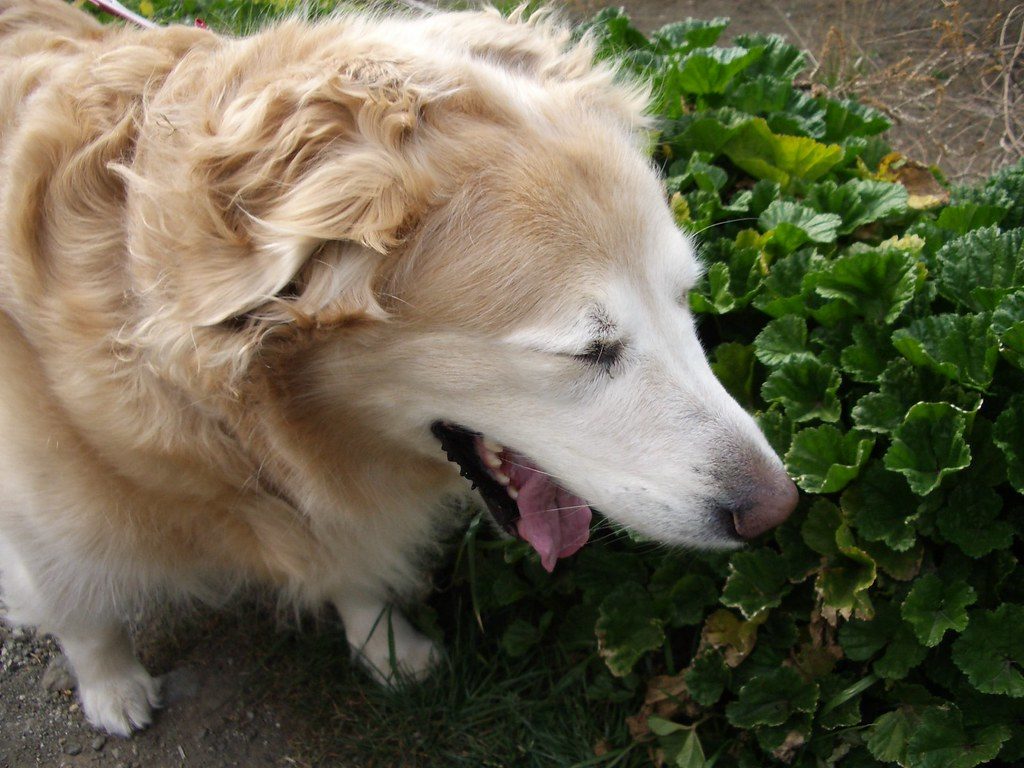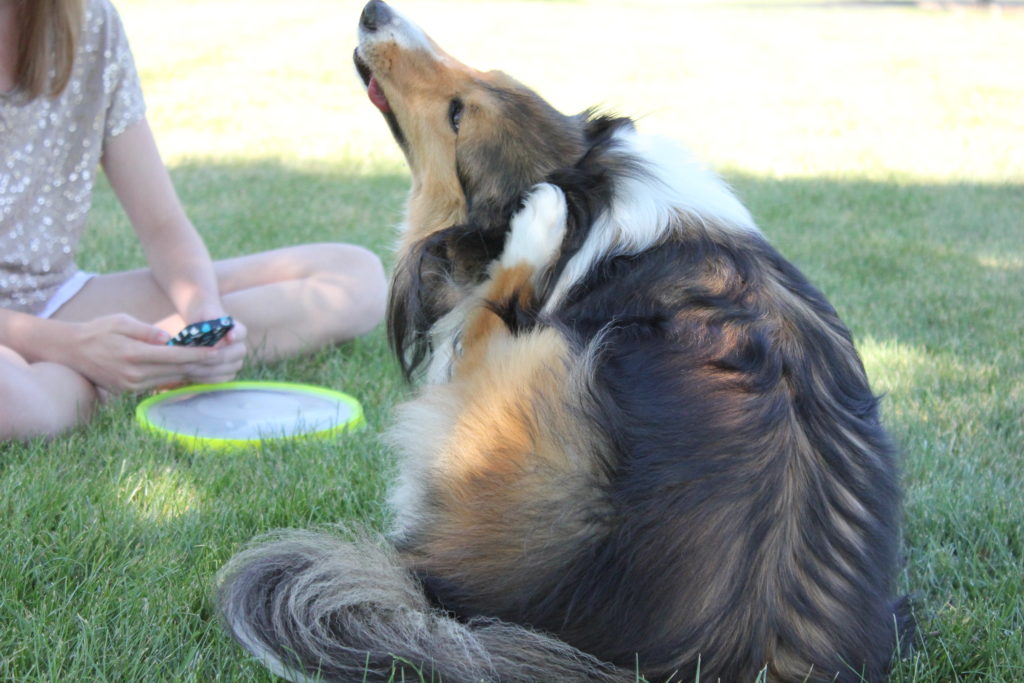Allergies are becoming increasingly common in dogs. And they are no fun for anyone. In fact, vets report it is what they are most often asked to treat. It is a challenge to diagnose one, but when they are left untreated, dog allergies can lead to a variety of health disturbances. Actually, you would be surprised to find out that a simple food intolerance is behind a very persistent ear infection that just keeps coming back!

Anyone who has ever suffered from allergies knows how awful it can be, and it is even worse for animals as they cannot realise where this dreadful ache is coming from! So we’ve prepared a little guide to help you help your best furry friend and hopefully, relieve it of dog allergies and their annoying symptoms.

Diagnosis
What is similar for all dog allergies is a weakened immune system. The immune system overreacts to a substance that is usually harmless to the body but the senses flag it as a threat. Then the body releases antibodies in order to attempt to relieve itself in the form of an abnormally intense reaction. And that is really what allergies are all about.

So, dog owners need to be on the lookout if their dog has the following symptoms, as this is likely a reflection of an underlying energy:
- Sneezing often
- Runny nose
- Dry and non-shiny coat
- Digestive upsets – diarrhea or vomiting
- Dog is constantly licking its front paws
- Excessive coughing
- Heavy snoring (out of nowhere as opposed to chronic as this would reflect respiratory difficulties which are common for pugs for example)
- Chronic ear infections
- Runny and itchy eyes
Although other symptoms can also occur, this is the typical picture. But how do you differentiate between an allergy and an influenza since their symptoms mostly overlap – the answer is ‘the itch’ factor! Yet, if your dog is scratching its ear, you need to exclude the possibility of an ear infection first. But then again, chronic ear infections can indeed be triggered by food intolerance and are always a result of poor immune system. Luckily, your vet can perform a variety of tests to see if an allergy is what is troubling your furry friend!
Cause of dog allergies
Determining what is exactly causing the reaction can be challenging. But whatever the cause, once established, the problem is not so easy to solve as it usually takes time. Unfortunately, regularly administrating drugs like heartworm preventive medicine, anti-flea and tick ampoules and combination vaccines is of no help in this aspect as all of this also ‘burdens’ the system. Obviously, these medicines do more good than harm but you need to be aware that any chemical given in a continuous manner is creating an additional job for your dog’s organism and certainly contributes as a cause of dog allergies. Just like us, dogs need to detox from time to time.
Now let’s see what sorts of allergies could be troubling your dog.
Environmental Dog Allergies
These allergies are triggered by external stimuli. Please note that dog allergies can be caused by a variety of environmental factors such as chlorine and other contaminants found in water and soil, release of gasses of formaldehyde, etc. Dog allergies can also be seasonal which include all sorts of pollen, from tree to flowers and grass. But dogs can also be allergic to dust and mould. And guess what, your dog could get a ‘sneeze-attack’ from cigarette smoke, certain perfumes and even cleaning products!
Just like their owners, dogs can also suffer from skin-contact allergies. Yes, animals too can be allergic to certain fabrics such as synthetic materials! Also, they can develop an allergy to plastic food bowls. Additionally, these bowls can be easily scratched by your dog, and this leaves places for bacteria to build up. Growth of harmful bacteria weakens the immune system and the never-ending circle begins. The same goes for any rubber materials that are often found in toys.
Food Allergies

Allergies to certain foods and allergens are very common in dogs. Studies even show that a third of all dog allergies are derived from food substances. And they often happen due to regular commercial food consumption that contains a great deal of mixtures of the most common culprits. For example, a kibble that is labelled as ‘lamb’ is likely to contain poultry ingredients. Although in significantly smaller amounts, a hint of an allergen is sufficient to alarm all of your dog’s senses.
Intolerance
The list of possible allergens is never-ending but the most common ones are:
- Grains: corn, wheat, rice
- Proteins: chicken, beef, eggs, pork, rabbit, fish, lamb
- Root vegetables: potatoes, carrot, sweet potatoes, yams
- Legumes: peanuts, lentils, peas, beans, soy
- Dairy: milk, yogurt, cheese
- Yeast
- Additives
Additives are the most tricky ones as they are often omitted from the ingredients list so they are the hardest to track down! Dogs can also have allergies to fruits and some spices. Ever noticed that your dog has an entirely different reaction to something that ‘looks’ the same? For example, heart-worm prevention medication. Interceptor and Spectra do the same thing and have the same ingredient – milbemycin oxime, yet it is not so rare that dogs vomit after switching from one brand to another! So besides the same active ingredient, clearly something is different!
The good news is that you can identify the trigger by switching to a simplified diet. But you must know that it will take 6 weeks to 2 months for the first results to be seen. Also, keep in mind that dogs can suffer from digestive upsets just by switching to another type of food so any change must be introduced gradually.
Flea Allergies
Just a few of these nasty bites will have your dog scratching for weeks. A dog itching its back near the base of the tail is oftentimes a sign of a flea allergy. Luckily, coconut oil can greatly soothe the itch, but you also have a variety of remedies to prevent the bites from happening in the first place. You can even use rosemary, lavender and geranium oils diluted in water and spray around your pet before going for a walk. Your vet can advise you on the commercial products with the highest anti-repellent success rate.

Treatment of dog allergies
Advice #1: Food Diet
Dr Pitcairns advises to feed your pet with a restricted diet. It should include millet or integral rice. As for proteins, opt for lamb, fish or lean turkey. Pumpkin is good for digestive upsets. Don’t add any spices, simply cooking in water is fine. Add vegetable oils that provide essential fatty acids, such as safflower, flaxseed and sunflower cold-pressed oil. Do not forget that your dog needs calcium so either make a bone meal (a broth) or ask your vet to subscribe an adequate supplement.
According to Dr. Pitcairns, the meal should consist of approximately 23% protein, 18% fat and 57% carbohydrates. You can find recipes and a lot of useful advice in his complete guide to cat and dog health.
Serve freshly made and freeze everything that your dog cannot eat in 3 days. Also note that for example, raw meat does not cause the same allergic reaction as cooked meat. Some dog owners even found that organic meat does not set off any symptoms yet their dogs do not tolerate the one from the usual supermarket. So it’s a trial and error process but putting your dog on an organic diet has a good likelihood to clear up a lot of problems.
If your dog’s condition has not improved after 2 months of being on the restricted diet, the cause of a health disturbance may not be a food allergy. On the upside, when you find out which substance is causing the reaction, you may be even able to switch to a kibble that excludes it. We are aware that cooking for a large dog can be somewhat challenging so opting for an organic ‘lamb and rice’ sensitivity kibble could do the trick!

Advice #2: vitamin C
When given in the right dosage, vitamin C acts like a natural antihistamine that controls allergies. It is most potent in the form of sodium ascorbate and your dog needs to take it for a year to reap all of its benefits, especially when combined with B vitamin complex.
Advice #3: Eliminate external disturbances as much as possible
Don’t use heavy chemicals in your home by opting for organic, pet-friendly cleaning products like Frosh that don’t contain any chlorine. Use organic shampoos without silicones, parabens and mineral oils. Just try to be aware of all the potential spots your dog is exposed to these external triggers and do your best to minimise their influence.
Be patient and persistent!
It will take a year or maybe even longer but dog allergies can be eliminated completely, or at least greatly mitigated. You can also use the help of natural remedies to combat your dog’s allergic tendencies. Whatever you and your vet decide to do, your effort will pay off and your furry companion will thank you.







